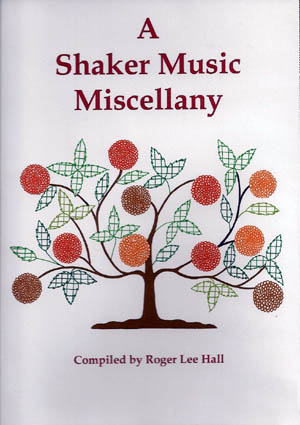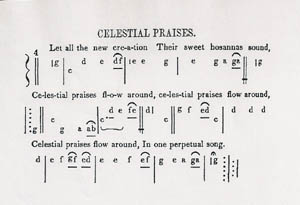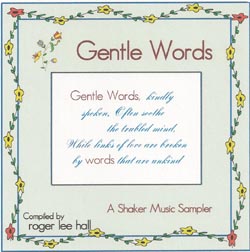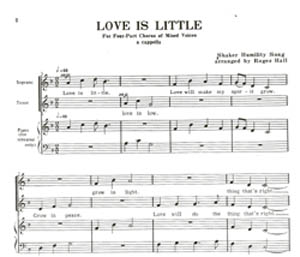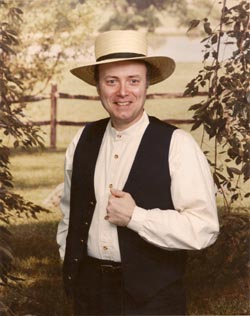

The Summer of a Shaker Song - 1967
By Roger Hall
The year 1967 has been described as the "Summer of Love" because of the
young people who traveled to the Haight-Ashbury district in San Francisco to find the hippie counterculture of "peace and love."That was the year the most popular rock album of its era was released: Sgt. Pepper's Lonely Hearts Club Band by The Beatles, and they took part in a global television event on 25 June 1967 and sang their new song, "All You Need Is Love."
It was also the Summer of 1967 when a very popular Shaker song was identified in print for the first time.
Since the early 1960s the United Society of Shakers had published a journal which they wrote and also had articles by non-Shaker scholars.In the Summer 1967 issue of The Shaker Quarterly, there was an lengthy article by Sister R. Mildred Barker titled, "History of Union Branch, Gorham, Maine, 1784-1819."
Her article describes one of the most prominent Shaker members from that Maine location:"The last surviving Gorham Shaker was Elder Joseph Brackett, Jr., who was a child of ten when his father united with the Shakers and the society of Gorham was organized. He himself became prominent and was for many years Elder of the Church Family in New Gloucester as well as first Minister of the Maine societies. Elder Otis Sawyer in his thumbnail sketch if Elder Joseph writes:
Elder Joseph was born in Cumberland, Maine, May 6, 1797. He was a very upright and godly man. Uncommonly devoted and truly consecrated. If he excelled in any essential Christian grace more than another, it was his perfect consecration. Remarkable for his habit of industry and prudence to which his attention was given through all his life. Though he traveled but little abroad, still he gained much knowledge of human nature and was a capable and faithful minister and leader. He possessed a remarkable and natural gift to sing by which he would often fill a whole assemble with the quickening power of God with his inspiration of song and his testimonies were often sharp and powerful as an edged sword and would often awaken sinners to repentance and lead them to make an honest confession holding many who were on the brink of ruin.
Sister Mildred continues by providing his date of death:
"He died July 4, 1882, at the age of eighty-five years, loved and respected by all who knew him."
She ends her description by identifying him as the composer of the most popular Shaker song: "Simple Gifts" (also known by its first line: 'Tis the gift to be simple). This is the first time in print that Elder Joseph Brackett was identified as the composer of the most popular Shaker song. For more on this song -- click here
When I interviewed Sister Mildred in 1980, she told me she learned Elder Joseph had composed "Simple Gifts" at the Shaker society in Alfred, Maine. That was the same society that Sister Mildred had lived in her youth before moving to Sabbathday Lake, Maine, now the only remaining Shaker society.
So it was in 1967 that "Simple Gifts" (often confused with the title of the Edward Deming Andrews book) was credited to the Shaker leader who wrote it.
And from that verification, as the Elder Joseph's song says in the last line,
'Till by turning, turning we come round right.
Read more about Sister Mildred Barker, who was photographed for LIFE magazine in 1967 -- click here
Read about this song, including interviews with Aaron Copland and Sister Mildred Barker, in a book with audio and video features on a multi-media DVD:
"Simple Gifts" - Great American Folk Song
Another Shaker connection to 1967 was with the best known early book about Shaker music:
This pioneering book was first published in hardcover in 1940 by J.J. Augustin. Then it was reprinted by Dover Publications in 1962. Five years later, the copyright was renewed by Mrs. Faith Andrews, widow of the author. So, also in 1967, another landmark publication was made available and still remains in print as a popular paperback book. This was the book that composer Aaron Copland found in a library that led him to compose variations on the "Simple Gifts" tune for his award-winning ballet score, Appalachian Spring, in 1944 and also a vocal arrangement in his set of Old American Songs from 1950.
© Photograph by Gail Halls.
Read about Copland meeting the Shakers for the first and only time -- click here
Music collections
A Shaker Music Miscellany -
Deluxe DVD-ROM with sheet music and over 200 music examples
Shaker Music CDs
Celestial Praises: A Celebration of Shaker Spirituals
Arrangements by Roger Lee Hall and Conrad Held
The Canterbury Singers
Kathryn Southworth, DirectorYou can order a download of the music by Roger Lee Hall at CD Baby
Joy of Angels:
Shaker Spirituals for Christmas and the New Year
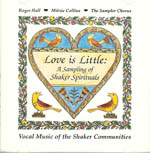
Love is Little:
A Sampling of Shaker Spirituals
For a list of Shaker music books and articles ,
click here
Music Commissions
Would you like to commission one or more Shaker spirituals for a concert,
church service or a special event?Composer Roger Lee Hall has arranged many Shaker tunes.
He is available to edit or arrange Shaker music for solo voice or
for a chorus with or without accompaniment.
Examples of his Shaker arrangements are found here
To inquire about Shaker music for a special event or a concert,
write to:
Lectures and Workshops
Are you interested in scheduling an entertaining Shaker music program
for your school, college, church, museum or other organization?For more information about Roger Lee Hall's programs,
click on this link:
If you have any questions,
click this link to:
Help support the mission of
American Music Preservation.com
Purchase any book, CD or DVD from the
© 2017 PineTree Productions. All Rights Reserved.
.





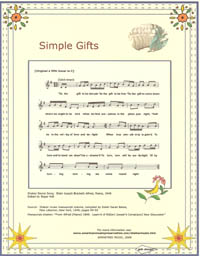
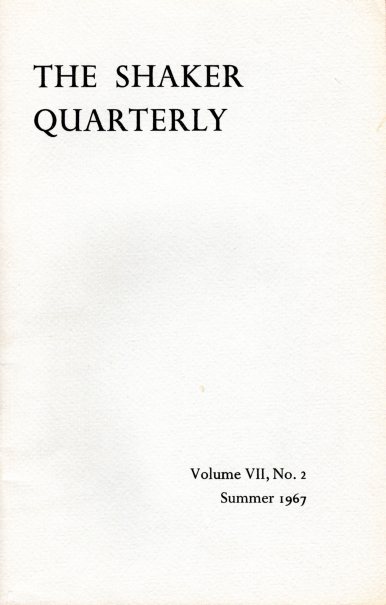

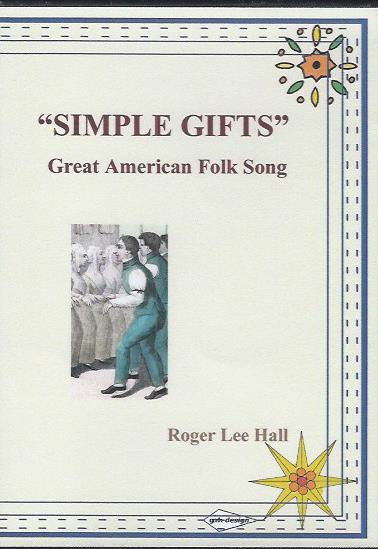



.jpg)
